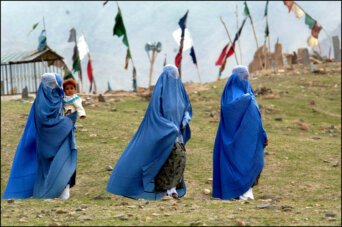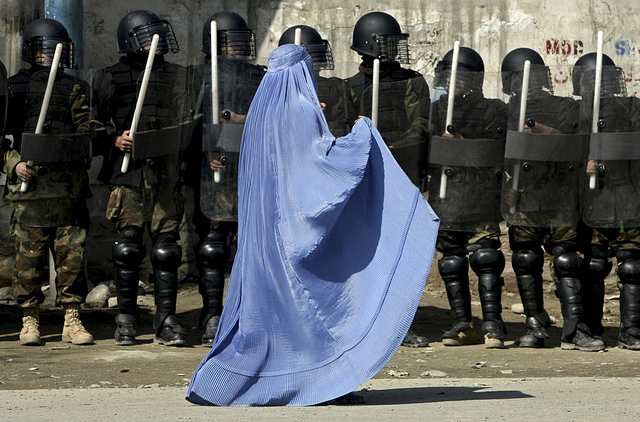- About
- Topics
- Picks
- Audio
- Story
- In-Depth
- Opinion
- News
- Donate
- Signup for our newsletterOur Editors' Best Picks.Send
Read, Debate: Engage.
| topic: | Women's rights |
|---|---|
| located: | Afghanistan |
| editor: | Shadi Khan Saif |
No matter how many variants of intimidating and cajoling tactics are employed for the success of the thorny Afghan peace process, without the meaningful participation of women and guarantee of their rights, a sustainable peace would remain elusive.
From top level political engagement and active field work across all sectors to equal access to education, Afghan women and girls deserve no less if peace is to prevail. With this at the heart of the peace negotiations, parties to the conflict must demonstrate to the devastated nation their commitment to honouring basic human rights in their quest for power.
It is true that the Afghan government continues to struggle with securing the emancipation of women across the country, but it is Taliban insurgents who promote the banishing of women and girls from public life through deliberate attempts.
On Tuesday, the eastern city Jalalabad saw three young female media professionals killed in broad daylight in yet another devastating incident of a targeted assassination spree.
The girls, Sadiah Sadat, Shahnaz Rufi and Morsal Wahidi, were employees of Enekas, a private TV channel. They were supporting their families while pursuing higher education under such treacherous circumstances.
The cunning smile posed by the alleged assassin linked to the Taliban after being caught depicted the sick mindset propagated under the guise of Islam against the emancipation of women in society.
Prior to this, at least 11 human rights defenders and media workers were killed in targeted attacks in Afghanistan between 12 September, 2020 (when the intra-Afghan peace negotiations started in Doha) and January 2021, said the UN last month.
A recent UN report recorded a total of 65 human rights defenders and media professionals killed in the period between 1 January, 2018 and 31 January, 2021. 32 of the victims were from the human rights sector and 33 from the media.
Of these, eleven people (five human rights defenders and six media personnel) were killed in the four-month period between 1 October, 2020 and 31 January 2021.
With the Taliban distancing themselves from such attacks, the absence of a clear condemnation on their part, coupled with zero representation of women among their ranks at the peace parley is enough to traumatise the war-weary nation about women's role in the country's future power structure.
With the rejuvenated yet fragile peace process gaining some momentum, it is high time to legally and morally bind the parties to war in Afghanistan to adhere to basic human rights principles, and specifically to internationally recognised rights and liberties of women and girls, as they wrangle for power in the war-ravaged country.
Image: riccardo maldera.

